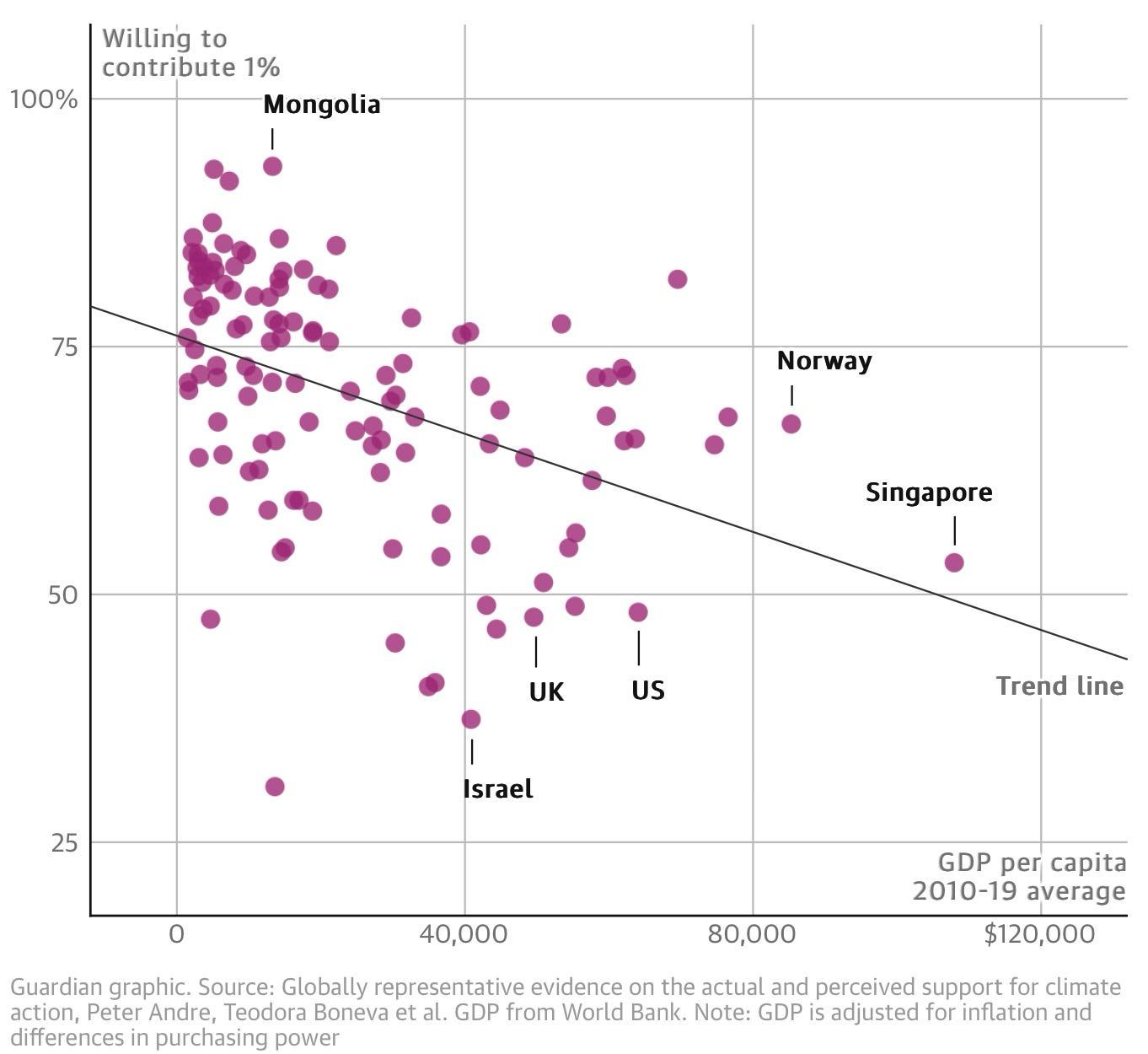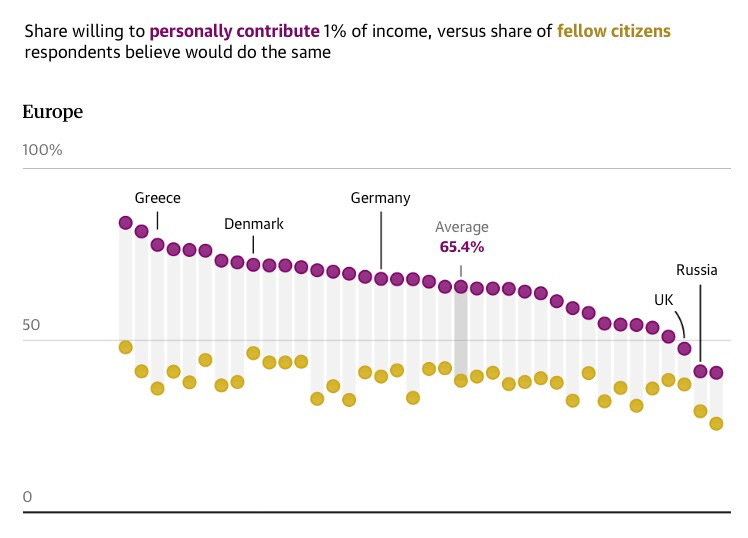'Silent majority' - almost all of us want to see action on the climate
More than 80% of the global population wants stronger government action on climate change. The real problem? Too many of us think we’re alone - story 68
It turns out we’re not alone after all.
A sweeping new survey by the 89% Project shows that more than 80 percent of the world’s population wants governments to take stronger action against climate change. Yet most people assume that support is scarce. Indeed
.. more than two-thirds said they were willing to give 1% of their income to fight the climate crisis. Crucially, however, they thought only a minority of other people – 43% – would be willing to do the same.
They were wrong.
You can read full details about the survey in the journal Nature Climate Change. This perception gap is not just an academic finding. I see it everywhere: talking about climate change (‘I think it is critical but very few others do’) or the restoration of Hammersmith Bridge (‘I like it just as it is but I know everyone else wants the see cars using it again.’). People assume they are the outliers.
Research shows a simple truth: once people experience positive change—whether it’s less traffic or a greener neighbourhood—they rarely want to go back. Yet inertia and misperception still dominate.
This misreading of public sentiment has real consequences. It allows politicians to act timidly—or not at all. It lets governments ignore the silent majority in favour of the noisy minority.
That is why my draft list of manifesto ideas for improving life in Barnes and Mortlake incudes gaining a better understanding of public sentiment. There have been surveys and social media polls conducted locally which are still quoted widely despite being deeply flawed. Katharine Viner, Editor-In-Chief at the The Guardian recognises the importance of such material when we she says,
We want to explore the myths, misconceptions and misinformation that lead people to underestimate support for climate action, and why governments aren’t doing what polling shows their voters want – even after suffering extreme weather events.
UK amongst least generous in Europe
Damian Carrington, The Guardian’s Environment Editor has a detailed history of polling around climate change including this most recent survey. Two things stood out for me.
Citizens of wealthier countries are less willing to contribute 1% of their income to fight climate change.
Even when only half of the UK population is willing to contribute 1% of their income to fight climate change, there’s still a perception gap.
Important role for politicians
Understanding public sentiment plays an important part in answering my organising question.
The perception gap is one aspect of public sentiment.
Any initiatives like 89% Project are to be welcome. Especially when they are global. After all the climate doesn’t care for postcodes, let alone countries or continents.
Senior politicians have a particular responsibility in how we answer the climate emergency. Decisions about trade-offs - inevitable - will sit with whosoever has been elected. At times, even our most senior politicians behave as though they are setting the time fame for those answers. They are not. This is not a negotiation between politicians. This is between people and the climate, and the climate so far has been a lousy negotiator.
As the blog develops, I intend to speak to a range of experts and leaders, including our local political leaders. I am going to be asking them how they assess public sentiment around climate change - whether appetite for change or understanding of consequences.
At the same time, I’m encouraged by the potential of a large, untapped group of people who could be mobilized to support a better future. Since this is a global challenge, the majority of Europeans who are caught in the perception gap represent a powerful force — if engaged, they could have a profound impact across Europe, including in the UK. (Despite Brexit, the EU remains our largest trading partner and our most frequent holiday destination.) As for the 20% of UK residents who fall into the perception gap, it’s reasonable to assume that some live here in Barnes and Mortlake.




